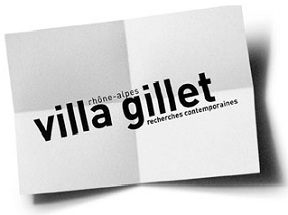Three Words for Dmitri Dmitriyevich Shostakovich
Wendy Lesser is an American critic, novelist, and editor based in Berkeley, California. She is the founding editor of the arts journal The Threepenny Review, and a member of the American Academy of Arts and Sciences. She has received fellowships from the Guggenheim Foundation, National Endowment for the Humanities, and the New York Public Library's Cullman Center for Scholars and Writers.
1. Death
It is no secret that he was often thinking about death. The circumstances of his life would have conspired to make that inevitable, even if his own morbid temperament had not already laid the groundwork. "He was very fearful of death," said the conductor Kurt Sanderling, speaking many decades later about the Shostakovich he had known. "But that wouldn't necessarily be linked to the quartets. Fear of death is a dominant, prominent subject only in the last works: the Fourteenth and Fifteenth Symphonies, the Fifteenth Quartet, the Viola Sonata."
Galina Shirinskaya, who knew him through her father and uncle, the cellist and second violinist of the Beethoven Quartet, had a slightly different view. Asked if she thought the Fifteenth Quartet was about death, she answered, "As well as. He had many compositions about death. It was the theme of the second half of his life... What else do geniuses talk about? About life and death." And the director Helga Landauer, though she was too young to have met Shostakovich herself, seconded and extended Shirinskaya's argument. "Music was the last retreat, intellectually," said Landauer, who helped make the film A Journey of Dmitry Shostakovich. "The thoughts about death, the eternal questions, which in literature had been replaced by particular Party questions about work or whatever - music was the last muse that was not totally scrutinized." Shostakovich, she felt, was particularly beloved as a composer because he chose to talk about these implicitly forbidden "eternal questions" in the way that only a great artist could.
But what does it mean for music to talk about death? Of course, one can go to the words of the Fourteenth Symphony, or of the very late song cycle based on verses by Michelangelo, and find direct references to death; for that matter, one can go all the way back to to his opera Lady Macbeth of the Mtsensk District, which includes three murders and a suicide. But Shirinskaya and Landauer, when they allude to Shostakovich's preoccupation with death, are talking about something else. They are referring to something in the music, outside and beyond its linguistic accompaniments. It is something they hear in the wordless quartets themselves; it is something that all the audiences at Shostakovich's quartet performances could hear; and it is something that we can still hear, now, decades and miles away from those original moments of composition and presentation. How is it that the string quartets can speak to us so clearly - if so complicatedly and ambiguously - about death?
2. Dread
The fear and anxiety were his, but they were also everyone else's. It was hard to distinguish internal from external in those times, in that place. Shostakovich's own nervousness, it's true, was partly physiological in origin - certainly by the end, when it was diagnosed as "a progressive neurological disorder." But in other circumstances, given a different life, he might not have ended up the shivering wreck he became. His body reflected his psychological state, and his psychological state was a rational reaction to the conditions of his time. For a man who was even slightly fearful and anxious to begin with, living under Stalin and becoming the quite specific object of the Soviet machine's constant scrutiny would have been enough to bring a sense of dread to the forefront of his character.
What did this mean for the music? A great deal, I think, and increasingly so as time went on. A certain amount of nervousness is evident even in the First Symphony, thought at that point it is almost inseparable from excitement. One can discern a more sinister kind of anxiety in the hesitations and uncertainties of the First Quartet, but there the effect is downplayed by the resolutely assertive ending. Only when we get to the period of the Second Piano Trio and the Second Quartet, late in the war and after the death of his friend Sollertinsky, do we truly begin to hear the sound of unmitigated dread. I hear it from then on in all the quartets, not annihilatingly or exclusively, but always there in the background, ready to spring out. It is there in the jumpy rhythms and sudden changes of key; it is there in the high, eerie, "etched" notes that play themselves out behind the foreground melodies; and it is there in the slowed-down, nearly silent, almost nonexistent parts of the music, which gesture toward the emptiness that lies just beyond the precipice we happen to be standing on.
3. Shame
As an element in Shostakovich's music, the shame is perhaps not as audible as the dread, but it is everpresent nonetheless. One cannot point to a precise place in the music where you can hear it, but it underlies and supports most of the other painful emotions, and if it were removed from the mix, you would certainly notice the difference. The shame is apparent in the harshness with which Shostakovich treats himself and his own feelings; it saves the saddest quartets (like the Eighth) from self-pity, and it saves the more cheerful ones (like the Sixth) from any tincture of smugness or self-assurance. Shostakovich's sense of shame is not the grandiose, embarrassing, self-dramatizing emotion manifested by a Fyodor Karamazov or a Semyon Marmeladov; on the contrary, it is a deeply internal and undemonstrative feeling, much closer in tone to Chekhov than to Dostoyevsky. It prevents the quartets from ever sounding at all bombastic or over-confidently authoritative; in this way it distinguishes the quartets from at least some of the symphonies and most of the commissioned songs, and it is probably what persuades us that the quartets are telling us the truth.
Shostakovich had a great deal to feel ashamed about, and it would appear that he was acutely susceptible to this particular emotion. According to Kurt Sanderling - who was recalling the 1948-53 period, during which Shostakovich, whose own music had been silenced by the Zhdanov Decree, found himself obliged to support the regime's aesthetic opinions - the composer once said that "the worst moment of his life was when he was asked whether he shared the Zhdanov opinion of Stravinsky, and he was forced to say yes." Even if that "worst moment" is an exaggeration, it still suggests how painfully aware he was of the public travesties he had lent himself to. To call this sentiment regret would be to downplay its importance: it was deeper, more elemental, less cerebral than regret, and it was unexpungeable.
The composer Sofia Gubaidulina, who is exactly one generation younger than Shostakovich, explained the impact of Shostakovich's betrayals and compromises on her circle of musicians. "When Shostakovich joined the Party in 1960, our disappointment knew no bounds," she told Elizabeth Wilson. "That such a man could be broken, that our system was capable of crushing a genius, was something I could not get over. We were left wondering why, just at this time when the political situation had relaxed somewhat, when at last it seemed possible to preserve one's integrity, Shostakovich fell victim to official flattery. What forced him into this action?"
Both Sanderling and Gubaidulina used the word "forced" to explain Shostakovich's craven behavior. Can one, or should one, feel ashamed of actions about which one had no choice? The answer that Bernard Williams gives in Shame and Necessity, his philosophical study of Greek tragic figures such as Ajax, Achilles, Oedipus, and Agamemnon, is basically yes. As Williams illuminatingly suggests, even the acts which these classical heroes committed under duress (that is, when operating under the influence of the gods, fate, madness, or other uncontrollable factors) warranted, and were met with, a feeling of personal shame.
There were no gods in Shostakovich's case, and he was not exactly a hero, but his situation was remarkably similar to the one Williams describes when he summarizes the ancient Greek idea of supernatural necessity: "an idea that the structure of things is purposive, playing against you. Things are arranged in such a way that what you do will make no difference to the eventual outcome, or will even help to bring about what you try to prevent." The ancients clearly felt that a man who lives under such conditions can still be held responsible for his own actions - perhaps more to the point, can still hold himself responsible. "Living in a world in which such forces or necessities operate does not, then, mean that you cannot do anything, or that you think you cannot do anything," Williams points out. "You can act; you can deliberate; and so you can think about what different things would have happened if you had acted differently." And in the midst of such thoughts you can, if you have the proper sensibility, experience shame. In this respect, shame is a symptom of freedom - not actual freedom, maybe, but the kind of existential freedom through which a human being asserts that he is still a self-determining individual rather than a mere movable force.
For Gubaidulina, something of this feeling seemed to enter into Shostakovich's music, enabling it to speak in a special way to and for his countrymen. What gave him this moral authority was not just that he had been subjected to terrible trials and unbearable cruelties, but that he had (in her words) "succumbed to weakness" and had thus become "pain personified, the epitome of the tragedy and terror of our times..." As a composer, she felt, "he was able to transform the pain that he so keenly experienced into something exalted and full of light, which transcends all worldly suffering... We listened to Shostakovich's new works in a kind of exaltation." And half a century later, we - who have our own shames, our own weaknesses - can still do the same.
Cette ressource a été publiée dans le cadre de la troisième saison du festival "Walls and Bridges" qui s'est déroulée du 19 au 28 octobre 2011 à New York.
Pour citer cette ressource :
Wendy Lesser, Three Words for Dmitri Dmitriyevich Shostakovich, La Clé des Langues [en ligne], Lyon, ENS de LYON/DGESCO (ISSN 2107-7029), février 2012. Consulté le 08/02/2026. URL: https://cle.ens-lyon.fr/anglais/arts/musique/three-words-for-dmitri-dmitriyevich-shostakovich



 Activer le mode zen
Activer le mode zen


